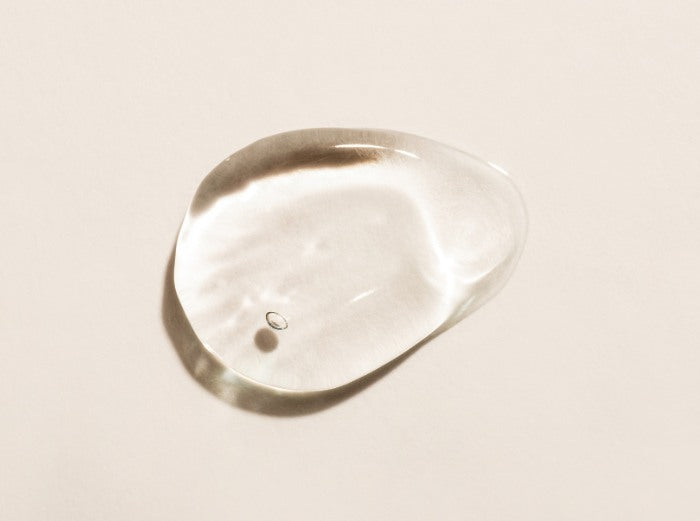If you suffer from sleep disorders, you've probably heard of melatonin, the sleep hormone. Although it's naturally secreted by the body, it's also found in dietary supplement form to improve the quality of sleep and restore a disrupted circadian rhythm. However, not all melatonin supplements have the same properties . In this article, we'll guide you through choosing the best dosage form of melatonin by explaining its role, benefits, and the essential criteria for choosing the right supplement.
Understanding Melatonin: Its Role and Functions in the Body
Melatonin is a hormone with multiple functions in the body, far beyond its role in sleep. Produced by the brain's pineal gland, this hormone acts as a biological regulator, influencing several vital systems.
In addition to its well-known action on the sleep-wake cycle and falling asleep , it is involved in other essential processes:
- Modulation of the immune system: Melatonin helps reduce inflammation by regulating certain pro-inflammatory cytokines [1].
- Hormonal regulation: It interacts with hormonal rhythms, notably by influencing the production of cortisol, the stress hormone, and other hormones linked to daily cycles [2].
- Antioxidant action: Thanks to its ability to neutralize free radicals, it protects cells against oxidative damage and helps slow down certain cellular aging processes [3].
These multiple roles make melatonin an essential molecule for overall health, although its most studied function remains its impact on sleep.
How does melatonin work on sleep?
Melatonin plays a key role in regulating the sleep-wake cycle . It is produced naturally by the pineal gland, and its secretion is closely linked to light exposure. As darkness sets in, its production increases to a nighttime peak, then gradually declines as dawn approaches. This process, known as the circadian rhythm , synchronizes the body with the day/night alternation of the external environment.
Physiologically, melatonin acts as a signal to prepare the body for rest. Unlike sleeping pills, it does not induce artificial sleep but acts as a natural regulator, adjusting the biological clock.
When taken as a dietary supplement, exogenous melatonin works differently. A precise dose, usually administered 20 to 60 minutes before bedtime, rapidly increases blood melatonin levels. This spike sends a direct signal to the brain that it is time to sleep, making it easier to fall asleep . This intervention is particularly useful in specific contexts, such as jet lag or disorders related to irregular lifestyle rhythms.
When should you take melatonin supplements?
Although the body naturally produces melatonin , several factors can reduce its secretion or disrupt its action. With age, melatonin production declines, explaining why sleep disturbances are common among seniors. Modern lifestyles, such as prolonged exposure to blue light from screens, shift work schedules, or chronic stress, also disrupt its natural cycle.
Melatonin supplementation may be helpful in the following cases:
- Sleep disorders: and particularly difficulty falling asleep (in case of disturbed sleep, night awakenings, consider a combination with Magnesium for example).
- Jet lag: After traveling across multiple time zones, to quickly restore a normal circadian rhythm.
- Night shift or shift work: To help synchronize sleep with irregular or unnatural sleep schedules.
- Age-related disturbances: In the elderly, regular supplementation helps compensate for the natural decrease in secretion.
How to choose your melatonin?
Faced with a varied offer, here is a list of criteria to take into consideration when choosing the melatonin supplement to guarantee its effectiveness and your comfort.
Product quality
Look for products that comply with European quality standards (EFSA), are registered in France with the DGAL (French Food Safety Authority) and/or with other regulatory authorities in other countries. This is particularly important for this product family.
The right dosage
Studies generally recommend a dosage of 1 to 1.9 mg to promote sleep onset without altering overall sleep quality [5].
For dietary supplements, ANSES (in France) and EFSA (in Europe) authorize a dosage of up to 1.9 mg/day. Beyond this, it will be considered a drug. Therefore, choose supplements for which the dosage is clearly indicated on the label and which do not exceed this dose.
Higher doses may cause side effects, such as daytime drowsiness or headaches.
The mode of administration
There are two distinct forms of dietary supplements available on the market. The choice between capsules, tablets, or liquids depends on your personal needs:
- Capsules and tablets : with a fairly slow action (taken approximately one hour before the desired sleep onset)
- Sublingual liquid : Ideal for rapid and effective action (20 to 30 minutes before the desired sleep time), particularly useful in case of specific needs, such as jet lag or night waking.
Why choose melatonin spray?
Among liquid galenics, spray melatonin stands out for its specific advantages, which make it particularly effective and practical.
Sublingual administration of the spray allows for rapid and maximum absorption. Aerosol diffusion allows for extensive contact with the oral mucosa and direct passage into the bloodstream. This ensures a rapid rise in plasma levels, within 20 to 30 minutes, which is ideal for immediate needs such as falling asleep or managing jet lag [4].
Studies confirm that melatonin sublingual spray offers better bioavailability compared to tablets or capsules, reinforcing its status as the preferred choice for rapid and effective melatonin supplementation [6].
The spray also offers great precision in dosage and its format is easy to carry to use, on the bedside table in a daily routine or when traveling.
Precautions to take with melatonin
Although melatonin is generally well tolerated, it is important to follow certain precautions to ensure its safe use. Excessive consumption can disrupt the natural sleep cycle and cause adverse effects, such as daytime drowsiness or headaches.
In pregnant or breastfeeding women, and for children (for occasional use), its administration must be strictly supervised by a doctor to ensure that the supplementation is appropriate and controlled.
Conclusion: Which melatonin is best for your needs?
Melatonin is a natural solution to improve sleep and restore a balanced circadian rhythm.
Be careful to choose melatonin that complies with European and French standards , ideally produced locally for maximum safety.
Sublingual liquids are more quickly effective than capsules or tablets.
The spray combines the advantages of maximum bioavailability and ease of use . This is why we at Argalys have chosen it for Melatonin.
Our melatonin spray is enhanced with poppy and honey extracts for maximum effectiveness. It's a solution that easily fits into your routine, whether you're managing jet lag or getting back to quality sleep .
References
- Ferracioli-Oda, E. et al. Melatonin for insomnia: a meta-analysis . PubMed: https://pubmed.ncbi.nlm.nih.gov/23669738
- Reiter, RJ et al. Melatonin as an antioxidant . PubMed: https://pubmed.ncbi.nlm.nih.gov/16443165
- Pandi-Perumal, SR et al. The role of melatonin in aging and neuroprotection . PubMed: https://pubmed.ncbi.nlm.nih.gov/19481868
- Cheuk, DK et al. Sublingual vs. oral melatonin absorption . PubMed: https://pubmed.ncbi.nlm.nih.gov/22057982
- Zisapel, N. Melatonin for sleep disorders . PubMed: https://pubmed.ncbi.nlm.nih.gov/28295757
- Dawson, D. Comparison of melatonin formulations . PubMed: https://pubmed.ncbi.nlm.nih.gov/22037226
 04 74 03 98 80
04 74 03 98 80









